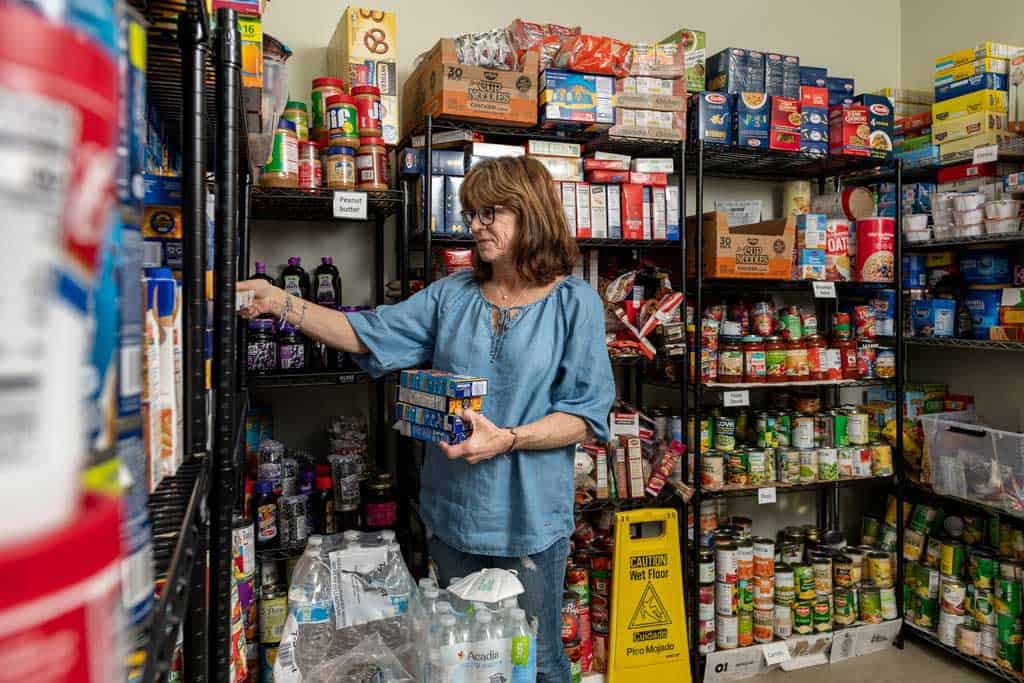Locating a Lifeline: Your Guide to Nearby Food Banks
Welcome, caring parents! Amid the hustle and bustle of daily life, we know that ensuring your family gets the nutrition they need can sometimes present its own set of challenges. Especially in those moments when life tosses a curveball, knowing where to turn for support can be a game-changer. Whether you need a helping hand or have the means to lend one, local food banks play a pivotal role in nurturing communities just like yours.
In this warm-hearted guide, we’ll dive into the steps you can take to find food banks in your vicinity. We’ll explore how they can provide more than just a meal to your table but also offer peace of mind and a sense of community. So, whether you’re in a pinch or eager to give back, let’s embark on this journey of discovery together.
Understanding Food Banks and Their Mission
Before we find our way to the nearest food bank, let’s take a moment to appreciate what they represent. Food banks are pillars of compassion within the community, operating as non-profit organizations that distribute food to those in need. They collaborate closely with food suppliers, donors, and volunteers to ensure that wholesome food reaches the tables of individuals and families facing temporary hardship.
These benevolent entities vary in services; some offer regular food parcels, while others may also run soup kitchens or social cafes. They cater to a diverse clientele, including low-income families, the elderly, those with disabilities, and even folks who have hit an unexpected rough patch.
Step-by-Step: Finding a Food Bank near You
- Community Centers and Online Directories: Start with local community centers, churches, or town halls which often have lists of nearby resources, including food banks. Additionally, online directories such as Feeding America’s Food Bank Locator can be extremely handy in pinpointing the closest aid.
- Search Engines Are Your Friend: Conduct a simple search with phrases like “food bank near me” or “local food assistance.” Search engines are quite adept at tailoring results to your location, thanks to a little help from GPS and IP addresses.
- Social Media as a Resource: Platforms like Facebook and Twitter can be surprisingly resourceful. Community groups on these platforms often have posts or threads dedicated to sharing information on local support services.
- Ask for Referrals: Don’t hesitate to ask your child’s school, your doctor’s office, or any trusted public service workers. They usually have a wealth of knowledge on local charity organizations including food banks.
Remember though, you’re not just looking for a food bank but for the right one that can cater to your family’s specific needs. So do inquire about what each food bank offers.
Evaluating Your Eligibility and What to Expect
It’s important to know that different food banks might have varying eligibility requirements. Some may simply serve anyone in need, while others might need proof of income, identification, or residency within a certain area.
Once you’ve determined a compatible food bank, here’s what you can typically expect on your first visit:
- Friendly Faces: Food banks have staff and volunteers who are there because they care. Expect to be greeted with respect and kindness.
- Registration Process: You’ll likely need to register, providing some basic information. This helps the food bank keep track of their inventory and services.
- Shopping or Pick-Up: Depending on the food bank’s system, you’ll either tour the facility like you would a grocery store or receive a pre-packed food parcel.
- Assistance Beyond Food: Many food banks also offer services like nutrition classes, budgeting help, and referrals to other forms of assistance.
In subsequent sections, we’ll shed light on how you can get more involved with food banks, from making donations to volunteering, along with how these community treasures can become a stepping stone to a brighter path for your family. And remember, seeking help when you need it isn’t a sign of weakness, but a bold step towards resilience and restoration.
As you continue to navigate through the vast sea of life, recognize that food banks stand as beacons of hope. With each bag of groceries, they’re not just filling pantries but igniting the flame of community spirit — a testament to the unwavering support that flows within and around us. So let’s keep sailing forward, together, as we delve further into making the most of these vital resources.

Five Things Parents Should Know When Preparing for a Food Bank Visit
Preparing for a visit to a food bank can sometimes be overwhelming. However, having a clear plan can ease the journey and allow you to make the most of the resources available. Here are five essentials to keep in mind:
1. Documentation May Be Required
First and foremost, it’s essential to gather any necessary documentation that the food bank may require. This could include:
- Proof of income or unemployment.
- Identification for all household members, such as a driver’s license or birth certificates.
- Proof of address, like a recent utility bill or a lease agreement.
Having these documents ready can help streamline the registration process and prevent any delays in receiving assistance.
2. Know the Operation Hours and Process
Food banks operate on specific schedules, and it’s important to be aware of these to plan your visit accordingly. Check the following:
- The days and times the food bank is open to the public.
- Whether you need to set an appointment or if it’s a first-come, first-served basis.
- The process for food selection or pick-up—it could be pre-packed parcels or a shopping-style experience.
Understanding the operational details will help ensure a smoother visit for you and your loved ones.
3. Consider Dietary Needs and Restrictions
If your family has special dietary needs or allergies, it’s a good idea to inform the food bank ahead of time. While they may not always be able to accommodate specific requests, they might offer suitable alternatives or guidance.
4. Transportation and Storage
Think about how you’ll transport the food from the bank to your home, especially if you’ll be receiving a sizable amount. If you don’t have a vehicle, explore community transportation options. Also, consider storage space at home to ensure that the food remains fresh and safe to consume.
5. Volunteer Opportunities
Many food banks welcome volunteers. Volunteering can be a wonderful way for you or your older children to give back and learn more about the operations and other services provided. Additionally, it fosters a sense of community and solidarity.
Maximizing the Benefits of Food Banks
Food banks offer more than just a meal—they can be centers for community growth and personal development. From cooking and nutrition workshops to budgeting classes, these institutions often provide tools that can lead to greater self-sufficiency. Don’t be shy to ask about these complementary services.
Also, utilize the visit as a chance to network with others. Sharing experiences and tips can build invaluable relationships and offer moral support during challenging times.
Contributing to the Food Bank Community
If you find yourself in a position to help, contributions to food banks are always appreciated. Whether donating food items, money, or time, every little bit helps to strengthen the foundation of these vital facilities. Remember, your involvement not only helps those in need but also nurtures a culture of care and generosity within your family and community.
Continuing along the path of nourishment and care, food banks ensure that nobody in the community has to face tough times alone. They symbolize the very essence of neighborly love and the collective spirit that brings us together in support of one another. So, as we move forward, let’s cherish and sustain these sanctuaries of solace and sharing, for they truly enrich the fabric of our society.
For more great fun click here. For more information see here
Disclaimer
The articles available via our website provide general information only and we strongly urge readers to exercise caution and conduct their own thorough research and fact-checking. The information presented should not be taken as absolute truth, and, to the maximum extent permitted by law, we will not be held liable for any inaccuracies or errors in the content. It is essential for individuals to independently verify and validate the information before making any decisions or taking any actions based on the articles.




